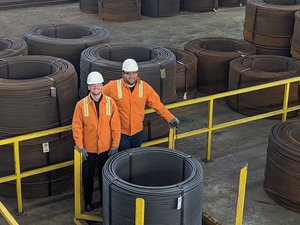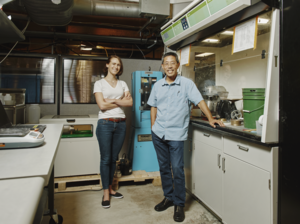
As 2015 venture capital totals come into focus, startups in U.S. cities face faces questions about how much VC funding will be available in 2016. For founders getting their startups out of the gates in any city outside the San Francisco Bay Area, one crucial question always comes up before or during funding discussions: Where should their startups be located?
In a look at funding trends across the U.S., a new report from the data-tracking company Mattermark, identified which cities have shown the strongest growth in deal volume and funding levels in recent years. In the report, cities including Kansas City, Raleigh, St. Louis, Austin and Washington emerged as hotspots where VC interest has grown.
Attention to all of these markets is deserved. But potential VC interest is just one component in the calculus founders should use to determine locations. Even VC interest depends on factors. Union Square Ventures' Fred Wilson observed in a blog post today, "VC has gone urban," clustering in major metros that investors can fly to easily. In other words, even the size of the nearest airport can be a factor in whether your startup gets funding. Every city has its own strengths and weaknesses that can influence a startup's chances at success. And whether a new startup takes VC funding or not, all of the following details can be as important as the sizes of local Series A filings – if not even more vital:
1. Universities and Other Institutions
Colleges and universities are sources of young talent. When entrepreneurial programs and skills training are at their best, metro areas can see huge population booms among successful, educated Millennials. Those spikes can energize local economies, pump fresh ideas into tech communities and funnel ambitious, entry-level workers into startups.
Research dollars can also attract larger companies and academics with entrepreneurial track records. They help cultivate niche centers of tech intelligence and nurture both pools of talent and opportunities for young startups. Look no further than Virginia Center for Autonomous Systems at Virginia Tech and the Mobility Transformation Center at the University of Michigan for examples. Together with the presence of pillar companies and employers, those institutions can transform metro areas into regional hubs for specialized tech activity.
2. Sector-Specific Activity
Every founder has his or her own network of supporters, and every successful business should position itself to take advantage of access those supporters and the market where it will get established. And every city has established sectors and companies that can feed evolving startups, whether it's a new biotech firm in Austin or an edtech company in Boston.
In many cases, larger, more mature companies can mean that prospective clients, talent and business parters are also easier to find in a given area. In St. Louis, ranked fifth in the Mattermark report, Emile Cambry runs Blue1647, a technology co-working and education organization with operations in both Chicago and St. Louis. Cambry pointed to two types of startups that are finding success.
"It's across the board, but I've noticed several B2B analytics startups being funded, as well as companies in the Agritech space, with prominent companies like Monsanto and the Climate Corporation located here," he told DC Inno.
In D.C., the edtech company Blackboard became one of the cities biggest tech stories of the late 90s and 00s. As Blackboards growth story played out, it produced a new generation of tech leaders for the area that have gone on to found and lead their own successful ventures, such as Parchment, FlatWorld Knowledge and Starfish Retention Solutions.
3. Livability
Office spaces don't exist in vacuums, and startups with plans to grow will always need to consider where its employees will live, how they will travel to work and what kind of lifestyle they can expect to enjoy when they join their new team. The presence of efficient transit options, entertainment establishments and arts organizations can each have a dramatic impact on whether employees choose to stick around.
Moreover, an area's cost of living will influence what a startup needs to pay to be competitive. In some cases, a city such as Cleveland or Salt Lake City may be a more inviting environment than San Francisco or New York, where rents may force workers to suffer through longer commutes and end each pay period with less disposable income.
4. Economies
Depressed economic activity can mean challenges or opportunities, depending on what a startup is looking to build.
In Chicago and Detroit, for instance, poor management has chipped away the cities' credit ratings and muted long-term abilities to take on big projects. Detroit has managed to recover somewhat from the hit it took after the auto industry's crash in 2008, but it still has obstacles ahead. Chicago, meanwhile, has a vibrant community of tech startups to watch right now, but both the city and Illinois have a lot of work to do to stem the loss of people and employers that is currently in progress.
5. Government Support for Startup Activity
Policies at the state and city levels can help or hinder tech communities. Regulations, taxes and incentives mean real differences for bottom lines and long-term planning. In the best scenarios, pro-growth policies can even result in new innovation districts and tech corridors that revitalize neighborhoods.
Just look at St. Louis.
"St. Louis is truly a hotbed of tech economic activity and growth," said Cambry. "It's pretty amazing, considering the size of the city versus other cities."
Cambry told DC Inno that government support has been key for St. Louis tech startups.
"This is because of a strong commitment by government, the venture community, and entrepreneurs working together," said Cambry in a conversation via email. "There are startup accelerators here which are working high volume, AND the State of Missouri has several programs to encourage tech entrepreneurs to locate here, like their Arch Grants program."








